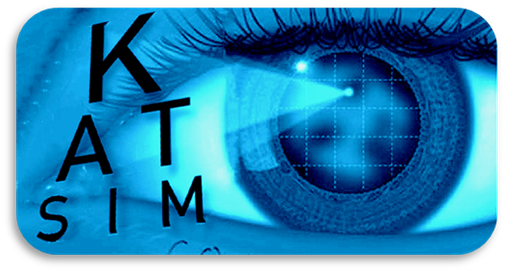KATSIM Project Develops a Simulation and Diagnostic Device for Catarakt and RLE ( Refractive Lens Exchange) Patients
Cataracts (or Katarrhaktēs in Greek) is an ophthalmic disease in which a cloudy area is formed in the lens of the
eye, resulting in blurred vision. Cataract is the world’s most common cause of preventable blindness and is
responsible for the loss of vision of 50 million people. Unfortunately, there is no proven primary prevention or medical treatment, and surgical removal and replacement of eye lens remains the only therapy. More than 50 million cataract surgeries (the most common surgery in the world) are performed each year, mostly in developed countries.
There are also people who would like to go through Refractive Lens Exchange – RLE surgery, to improve their vision and eliminate the need for eyeglasses even though they don’t have cataracts (people between 40 to 60 years old).
Cataract surgery evolved significantly within the last decade. There are several Intraocular Lens (IOL) options for cataract surgery: Since there are a wide variety of IOLs available in the market, it is getting more difficult to match the right patient to the right IOL.
Problem:
It is not possible to predict post-operative performance of different IOLs before cataract surgery.
All patients have some anxiety before cataract surgery and would like to know:
● How much will their visual acuity improve?
● Will they be able to get rid of glasses if they choose multifocal IOLs?
● Will they have side effects such as halo and glare around light sources, and dysphotopsia (unwanted images)?
Unfortunately, such a simulator does not exist, and existing diagnostics devices have limited utility.
Solution:
KATSIM project develops a vision simulator, which will help patients visualize the post-operative performance of different IOL options (monofocal, trifocal, others) as well as possible side-effects before cataract surgery.

This Project has received funding from the European Union’s HORIZON-EIC-2021-TRANSITION-CHALLENGES-01 under Grant Agreement No: 101057672 Topic: KATSIM

